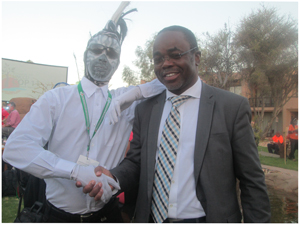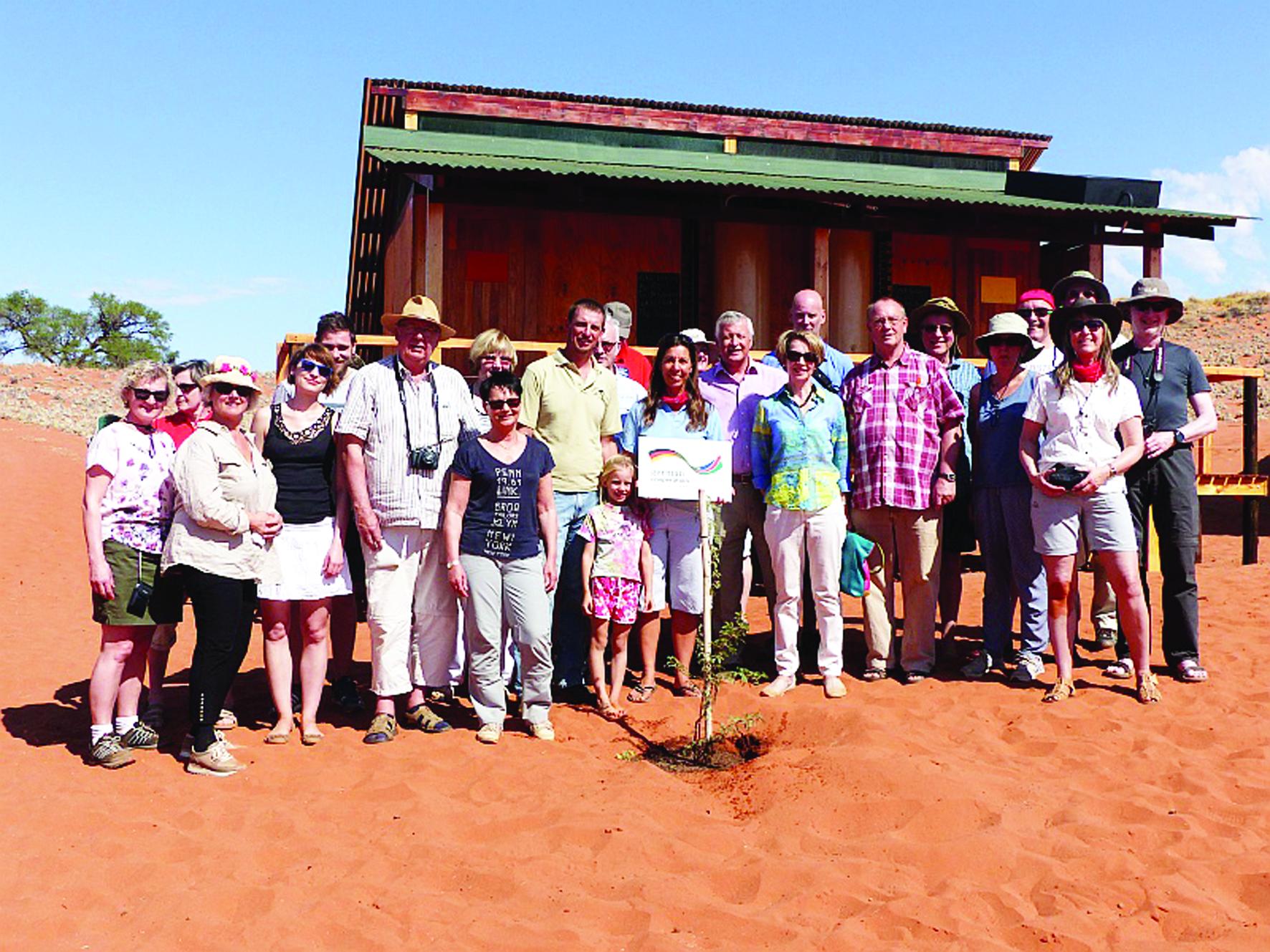
New Secretary for UNCCD

Outgoing UNCCD Executive Secretary, Luc Gnacadja. (Photograph by Hilmah Hashange)
Barbut has been committed to issues of Desertification, Land Degradation and Drought through her previous work as Chief Executive Officer of the Global Environmental Facility (GEF).
During her tenure, the Fourth GEF Assembly amended the GEF Instrument to list UNCCD among the treaties for which the facility acts in the role of financial mechanism. The GEF, as financial mechanism of the UNCCD, directly contributes to the implementation of the Convention, including its Ten-year (2008–2018) Strategic Plan and Framework, adopted by the Conference of Parties during the Eighth Session.
She attended the first session of the Conference of the Parties (COP1) to the UNCCD as a delegate of the Government of France. She attended COP.9 in Buenos Aires as key note speaker and substantively contributed to its outcome.
Barbut replaces outgoing UNCCD Executive Secretary, Luc Gnacadja whose tenure comes to an end after the eleventh session of the Conference of the Parties (COP11) to the UNCCD currently under way in Windhoek until 27 September. COP11 is Gnacadja’s third and last COP as the Executive Secretary of the UNCCD.
At the opening of COP11 held on Monday, 16 September, Gnacadja expressed his appreciation to Parties for having granted him the immense privilege to serve the Convention and applauded Namibia’s efforts to develop and operate a strong national drought risk management policy as the right approach to combating land degradation and desertification.
During his tenure, Gnacadja brought the Convention into a new dimension through more closely linking science and knowledge to policy development; advancing measurability and monitoring under the UNCCD as well as related capacity building; strengthening advocacy and outreach; and improving the institutional set-up of the UNCCD, among others.
Rio+20 Conference, achieved under Gnacadja’s tenure, constitutes a major milestone for the Convention as World Leaders committed to gear the Planet towards a land-degradation neutral world.
The UNCCD was established in 1994 and is the sole legally binding international agreement linking environment, development and the promotion of healthy soils. The Convention’s 195 signatory Parties (194 countries and the European Union), work to alleviate poverty in the dry-lands, maintain and restore the land’s productivity and mitigate the effects of drought.











































